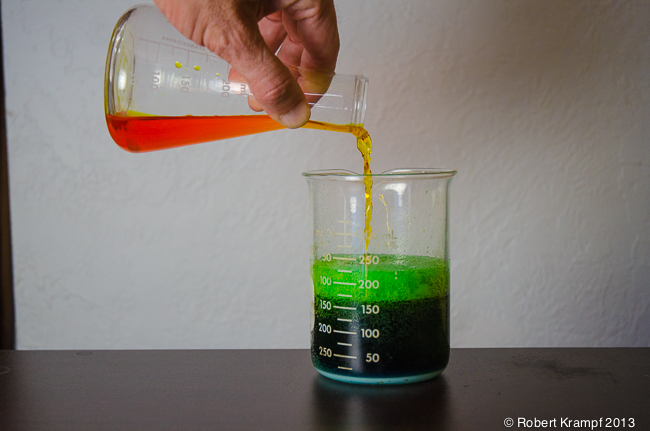
When a scientist makes a new discovery, other scientists usually do exactly the same experiment. Why?
-
They want to get part of the credit.
No. While replicating an experiment is very important, the scientists who do it usually don't get much credit for their work unless they discover an error in the original experiment. -
Repetition is part of the scientific process.
No. Repetition is when scientists repeat their own experiment several times, not when other scientists do the same experiment. -
They think they can make changes to improve the experiment.
No. By doing exactly the same experiment, they are not changing anything. Instead, they are replicating the experiment as closely as possible. -
Replication is part of the scientific process.
Yes. By replicating the experiment, other scientists can help verify that the results are accurate. There is always a possibility that there was some unnoticed influence on the original experiment, and replication can help spot that.
Click to see which state standards this question tests, and which of my videos, experiments, and other resources support that topic.
Florida
SC.2.N.1.4 Explain how particular scientific investigations should yield similar conclusions when repeated.
| What is Science? | video, ClosedCaptions |
| Review Scientific Process-6 | practice |
| Review Scientific Process-5 | practice |
| Review Scientific Process-7 | practice |
| Review Scientific Process-10 | practice |
SC.5.N.2.2 Recognize and explain that when scientific investigations are carried out, the evidence produced by those investigations should be replicable by others.
>>> Teacher Page: Nature of Science and Dissolving
| What is Science? | video, ClosedCaptions |
| What is Science?: Repeat and Replicate | video |
| Review Scientific Process-6 | practice |
| Review Scientific Process-5 | practice |
| Review Scientific Process-10 | practice |
SC.6.N.1.2 Explain why scientific investigations should be replicable.
| What is Science? | video, ClosedCaptions |
| What is Science?: Repeat and Replicate | video |
| Review Scientific Process-6 | practice |
| Review Scientific Process-5 | practice |
SC.7.N.1.2 Differentiate replication (by others) from repetition (multiple trials).
| What is Science? | video, ClosedCaptions |
| What is Science?: Repeat and Replicate | video |
| Review Scientific Process-6 | practice |
| Review Scientific Process-5 | practice |
SC.8.N.1.2 Design and conduct a study using repeated trials and replication.
| What is Science?: Repeat and Replicate | video |
| Review Scientific Process-6 | practice |
| Review Scientific Process-5 | practice |
| Review Scientific Process-7 | practice |
| Review Scientific Process-10 | practice |
